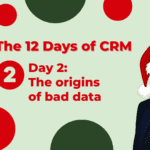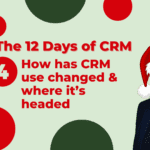The Top 10 Challenges to CRM Success and How to Avoid Them – Part 2

In our previous post, The Top 10 Challenges to CRM Success and How to Avoid Them – Part 1, we discussed the five challenges that are most often encountered when implementing a CRM. Here are five more that we typically see – along with some best practices and solutions for success:
6. Resources
Successful CRM implementations are not quick, easy or cheap. This is the reason they are also not common. Failure to dedicate adequate resources – including time, money and people – is one of the most frequent missteps. Additionally, expectations regarding the actual costs and time required for a CRM implementation are often unrealistic. When this occurs, the inevitable disappointment that ensues will usually be blamed on the system.
Solution: Be realistic. Make an effort to fully understand the initial and ongoing costs of a CRM deployment from the outset. Take into consideration not only the license or subscription costs but also professional services, ongoing maintenance, training, communication, integration and data quality resources required. Not every organization has the unlimited resources needed to accomplish a laundry list of lofty objectives at the outset. Instead, figure out what can be accomplished with the resources currently at hand that can provide the biggest payback.
7. Data Quality
Data quality is absolutely imperative to CRM success – and poor data quality is one of the most common complaints we hear across the board. Whether it’s incorrect information, duplicative or dated data or lack of information that users need, nothing undermines CRM adoption and success more than degraded data. And if users find issues with the data, they will not use the system.
Solution: Regardless of the CRM system, every organization needs initial and ongoing data stewarding to keep a watchful eye on new records coming in, associate people to companies, monitor changes to records, merge duplicates, research bounced emails and cull contacts that are no longer viable. This is even more important during a rollout, when thousands of new contacts flow into the system, requiring significant additional resources. As the rollout progresses, be sure to leave time before training new groups to focus on cleaning their most important contacts – the ones they are most likely to look for. If the data is bad, they won’t trust the system. It’s also important to create a styles and standards guide to ensure data consistency and increase the speed and efficiency of data cleaning.
8. Admins / Assistants
Never underestimate the importance of assistants to CRM success. Failure to focus on communication and training with this group can often result in poor adoption and data quality concerns. Additionally, if admin participation is considered ‘optional’ or an afterthought or there is no leadership mandate for this group to use the CRM, you will find yourself fighting an uphill battle.
Solution: Involve the admin staff early and often. Solicit their input and feedback. While it can sometimes be challenging to get everyone in the organization to use the system, you can certainly require it of the administrative staff. Admin training should be required, and it should focus on things that are relevant to their work routines and elements of their jobs that can be made easier by CRM. Demonstrate ways the system can help to save time and increase efficiency. Disseminate data standards to show how information should be entered consistently. Create CRM certification standards as a part of their job responsibilities. Ensure that leaders communicate to them the importance of system usage.
9. Training
When CRM systems don’t live up to expectations, failure to focus on training is frequently cited as one of the most pressing problems. After the significant initial investment in a CRM, it would be shortsighted to allow the implementation to languish due to inadequate education. Most important, if users don’t know how to do or find what they need in the system, they will abandon it.
Solution: Training programs must be required and should be customized for types of users. Different individuals perform diverse duties with CRM, so they need individualized training. Have meetings with department or group leaders or conduct a survey to determine individual needs and modify the training to make it relevant for each group. Key users or professionals should be trained desk-side in their offices in brief intervals. For others, classroom training may be more appropriate. Consider the varied learning styles of users and provide information in various formats such as videos and quick reference guides. Add a CRM tips-and-tricks section to your internal newsletter or portal. Create a knowledge base with key documentation. And don’t underestimate one of the keys to CRM success: food! Use pizza parties or lunch-and-learn sessions to get users there. In addition to useful information, provide prizes to motivate them. Additionally, remember that training is not a one-time event, so be sure to focus on new hire and ongoing education.
10. Access to Information
Too often we see instances where there is good data in the CRM but no way to get that data out to make it actionable or to deliver it in a way that users want to access it. Quickly generating aggregated data into useful formats to provide real value to users during the implementation is a goal that doesn’t usually get met – to the detriment of CRM adoption and success.
Solution: Easy access to targeted information will increase adoption. Don’t be hamstrung by out-of-the-box reports. Instead, sit down with stakeholders early in the implementation to identify information they need to succeed and the formats they would like to receive it in. Spending the time to create custom reports that users appreciate will bolster system value and increase adoption. Create saved searches for frequently requested information, provide quick access links to commonly used lists or use dashboards or charts to visualize data.
Of course, this list may not cover every CRM challenge you are facing. We would need a lot more time and space to cover them all. If you would like help with a particular challenge, contact us at 404-249-9914 or Info@CLIENTSFirstConsulting.com. We are always happy to share information, ideas and best practices for CRM success. Additionally, if you would like to see videos of some of the most common CRM challenges directly from top marketing leaders, visit www.EpicCRMFails.com.
For more than 10 years, the team at CLIENTSFirst Consulting has been helping professional services firms and other organizations successfully select and implement CRM and eMarketing systems and improve their Data Quality – to maximize value, adoption and return on technology investments. If you need help achieving CRM Success, please contact us at 404-249-9914 or Info@CLIENTSFirstConsulting.com.







